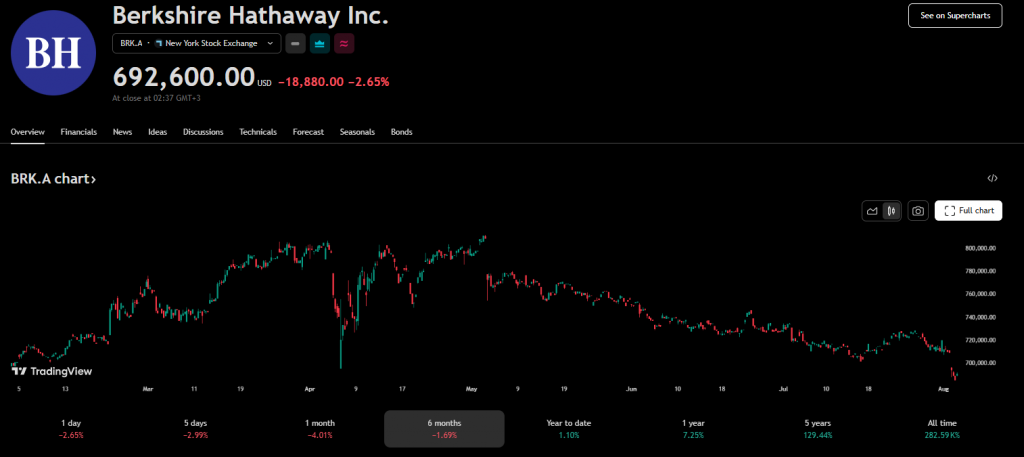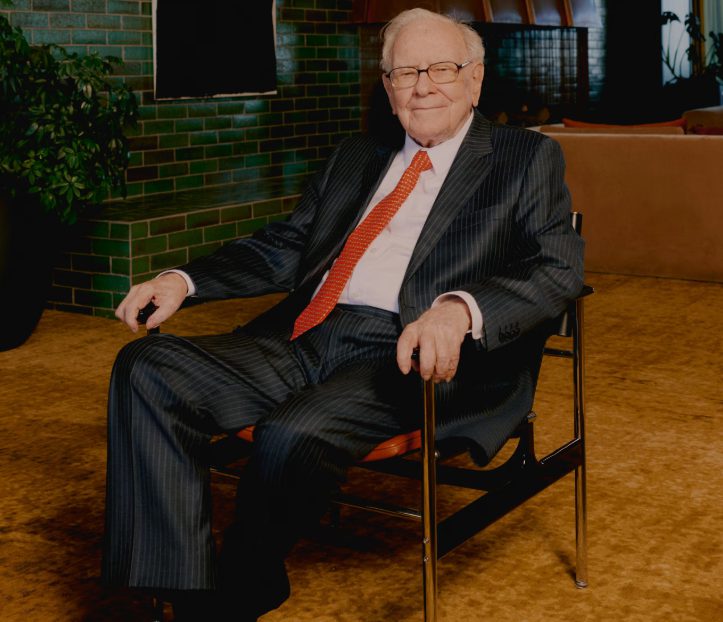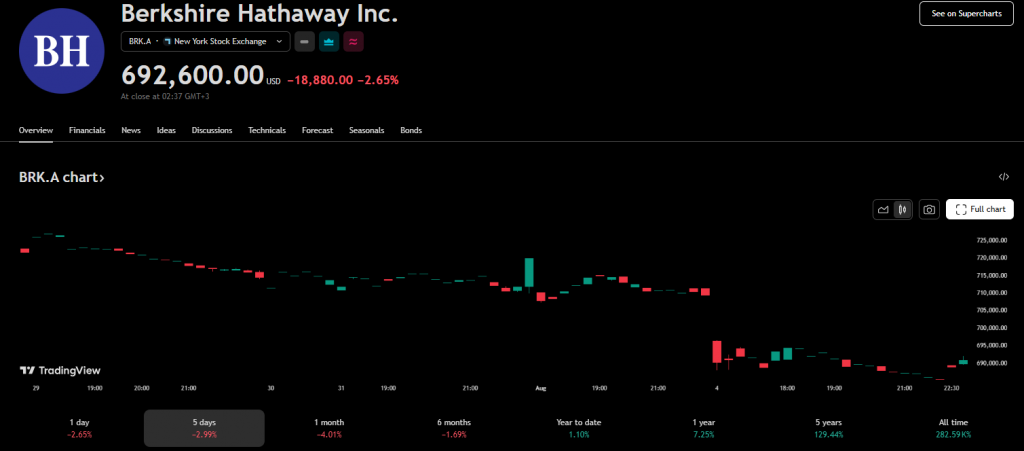Berkshire Plummets 12% Post-Buffett Retirement Bombshell – Dumps $3B in Fire Sale
Wall Street reels as the Oracle's exit sends shockwaves through Omaha.
The Buffett Effect: When Legends Leave
Markets hate uncertainty—and nothing screams 'panic' like a living legend stepping away from the helm. Berkshire's 12% nosedive proves even 'too big to fail' isn't immune to sentiment.
$3 Billion Exit Ramp
The sell-off wasn't subtle. A cool $3 billion liquidation suggests someone's prepping for stormy weather—or just cashing in before the PE ratios catch up to reality. (Because nothing says 'value investing' like dumping assets at market lows.)
The New Reality
No more Buffett backstop. No more folksy wisdom to calm the herd. Just cold, hard numbers and a boardroom suddenly under the microscope. Welcome to the post-Oracle era—where even blue chips bleed.
 The Berkshire Hathaway Inc. stock interface showing price $692,600.00 with -2.65% decline – Source: TradingView
The Berkshire Hathaway Inc. stock interface showing price $692,600.00 with -2.65% decline – Source: TradingView
Berkshire Stock Slump Linked to Buffett Exit, Q2 Earnings, Cash Cuts

The crash of the Berkshire Hathaway stock further worsened after Buffett announced his unexpected sudden retirement during the May shareholders meeting. On May 3rd, the company poured 12 percent declining in stock price and the S&P 500 ROSE by 10 percent, displaying investor nervousness over the Warren Buffett-free future.
Cathy Seifert, CFRA Research analyst, said:
The 2025 Q2 report on earnings results was also dismal at best, as the operating profits declined by about 4% to a value of 11.2 billion. The company took a $3.8 billion writedown on Kraft Heinz, slashing the stake to $8.4 billion.
Cash Strategy Remains Defensive
Berkshire cash reserves drop from $348 billion to $344 billion during the quarter. The Warren buffet stock strategy of cautious deployment continues with zero buybacks since May 2024. For the 11th straight quarter, the company sold $3 billion more stocks than purchased.

Brian Meredith, UBS analyst, also said that:
“Buffett leaves a company that is less reliant on his investing capabilities, with an array of leading businesses with strong cash flows.”

